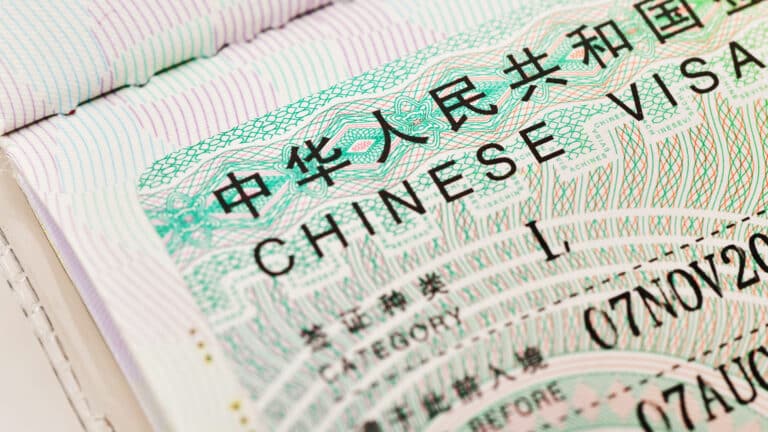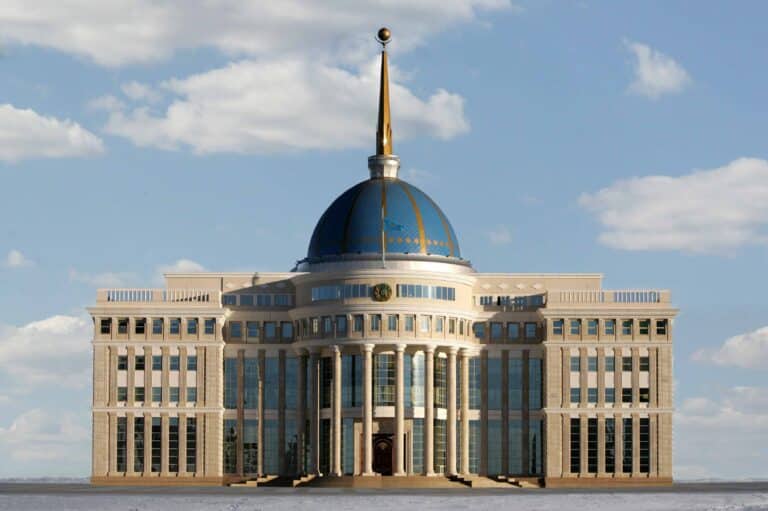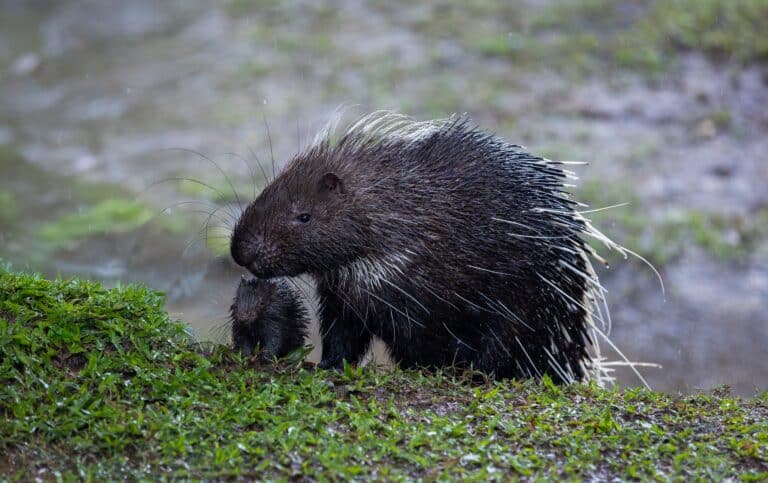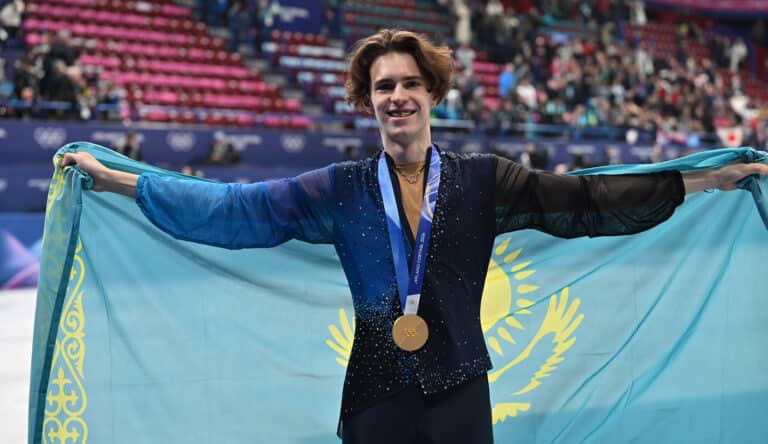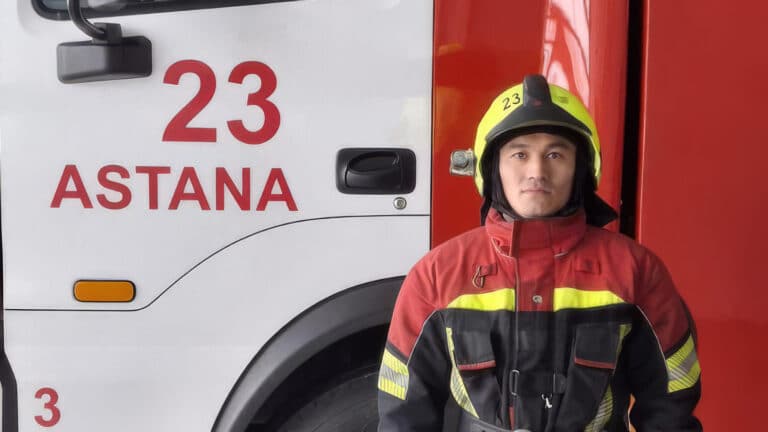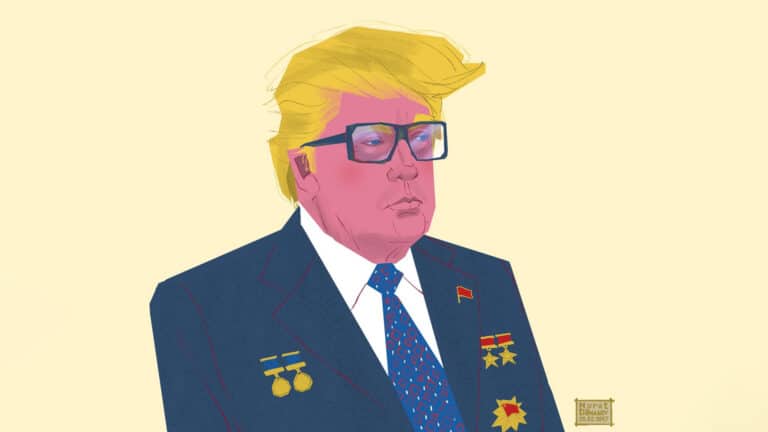Today, September 28, the Chess Caravan tournament is being held in Ust-Kamenogorsk. Two days ago the caravan was in Semey, while on October 2 it will be in Taldykorgan, where local chess players will also be able to take part in the tournament. In other words, the Chess Caravan is nothing more than an amateur tournament that stretches throughout the country, while its organizers travel by cars that are going this fall across the country like an ancient caravan. Vice President of the Kazakhstan Chess Federation (KazChess) Alexander Babenko told Kursiv why they decided to cover 14,000 kilometers this way.
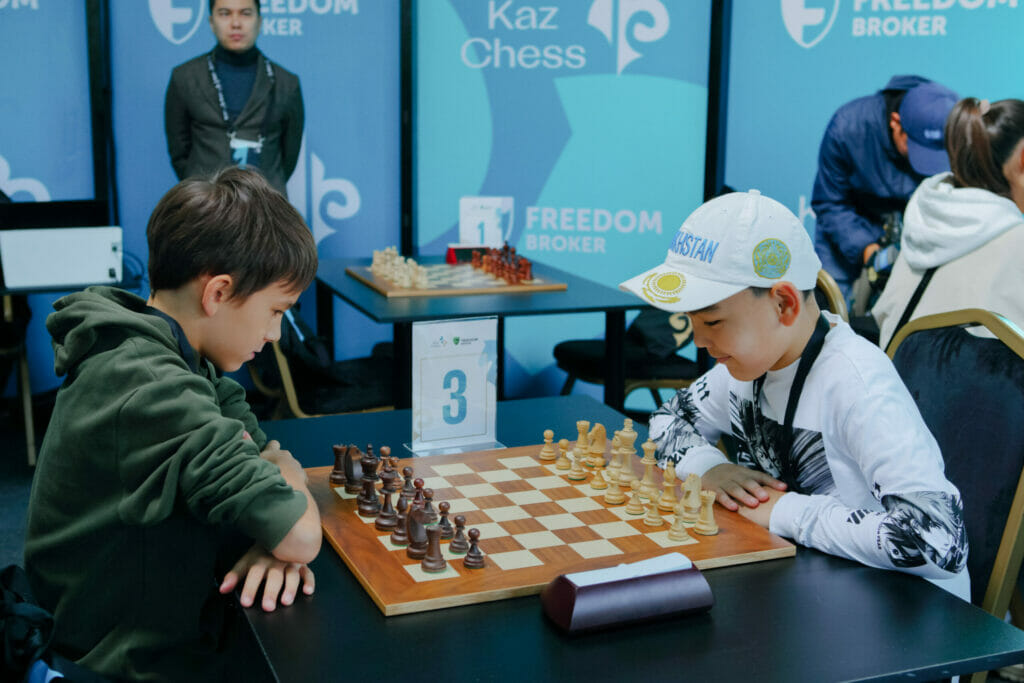
– As we know, the caravans of the Silk Road carried not only goods but also new knowledge. This is the way chess was brought to Europe and Asia from ancient India. What is your caravan carrying across the country?
– Our key purpose is to develop the intellectual potential of our country, although I know that it sounds a bit pathetic. When I joined the chess federation 25 years ago, I immediately fell in love with my job. However, the first 10 to 15 years in this sphere I didn’t clearly understand why we were doing all that work. When we understood that our prior goal was to facilitate the development of the intellectual potential of the nation, it was a big revelation for me. It’s much easier to work when you know why you are doing what you are doing.
Concerning Chess Caravan I think it’s safe to say that it is a good opportunity to draw the attention of the public, entrepreneurs and local authorities to the existence of this tool. This is a very powerful tool that can make an additional contribution to the development of the intellectual potential of the nation. Why am I sure of this? Because practice proves it. Let me give you an example: pupils from the second, third and fourth grades attended chess lessons twice a week for three years in a row in ten schools of the Pavlodar region. Then we tested children from these classes and children from parallel classes, who haven’t attended chess lessons. The difference was quite obvious.
– It seems that this game has been gaining popularity over the past few years in Kazakhstan. Why have you decided to spend resources to promote this game in the country’s regions?
– Let me speak in a roundabout way. People have played chess in Kazakhstan for decades. In the 1960s and 1970s, Kazakhstan hosted the semifinals of the USSR Chess Championship. At the time, it was a very high-profile tournament for the country. In the twenty-first century, chess in Kazakhstan was also developing, but two events that happened recently made a difference. First of all, President Tokayev said that he would keep an eye on the development of chess, and secondly, Timur Turlov was elected as President of KazChess. What was the result? Over the last twelve months, we held three world championships in different categories. Our players won the Asian Continental Championship and obtained silver medals at the World Women’s Team Championship in Poland, where our women’s team beat teams from China, India, the U.S. and many other countries.
However, we know that without a strong basis, even these remarkable achievements would make us nothing more than a giant with feet of clay. We need a strong basis, which is why we are going to promote the development of chess in different regions. We need a connection between the center, the KazChess and regional divisions. As a result, we are creating our regional branches and determining the composition of the regional board of trustees. Once there is strong support on the ground, we will have more chess centers in the country like Almaty, Pavlodar, Astana and Karaganda. Even these cities will benefit from the healthy synergy between the capabilities of KazChess and support by the society, businesses, authorities and enthusiasts in the regions.
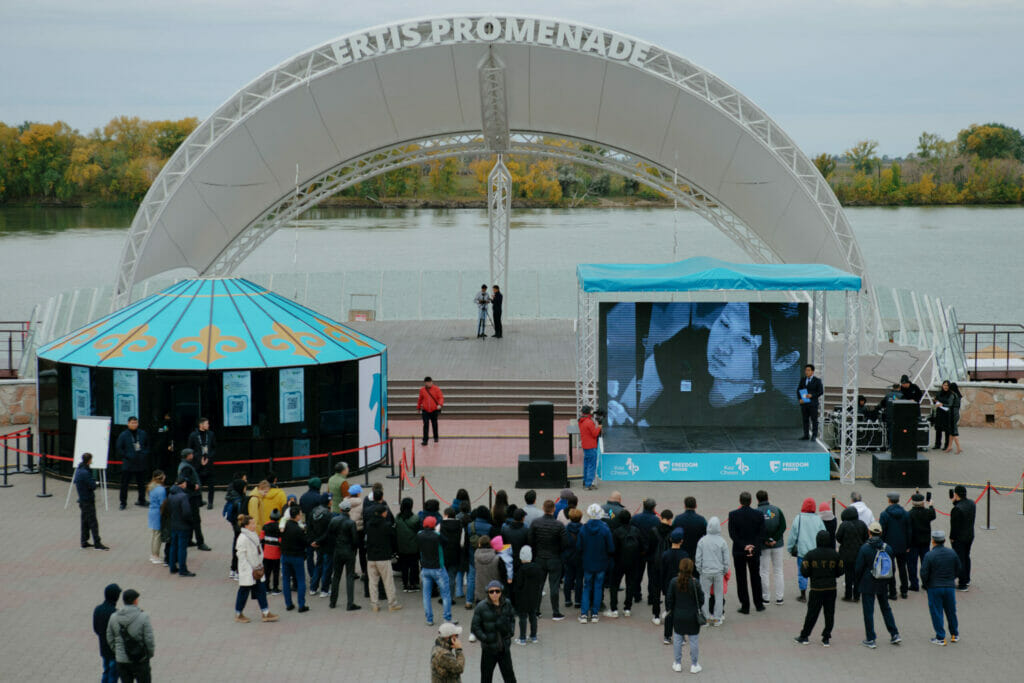
– Are you going to open regional branches of the KazChess if regional federations already exist?
– Even though the regional federations will continue to exist, we want to have a united team, not just two centers of power. We are moving away from any confrontation and division as much as possible. We are going to strengthen our capabilities. Until recently, both KazChess branches and regional federations were working on pure enthusiasm as volunteers. Today, President of the KazChess Timur Turlov wants us to act like managers for whom it will not just be a hobby (which, of course, is also very important), but a job, a paid job. I think that it’s safe to say that this is a more professional approach.
– Does this mean that chess managers will have some sort of KPIs or other obligations?
– Definitely! Next year, we are going to adopt new regional programs aimed at the development of chess based on certain KPIs. This is absolutely necessary because we can’t waste public funds and resources provided by our partners. We have to streamline and unify our activities since we have obtained experience in different regions of our country. After all, chess is a universal game that can be played by everyone, whether they are five-year-old children or gray-haired elderly people, women or men. We have neither gender nor age restrictions.
– Within the Chess Caravan, you organize amateur blitz tournaments in each city you visit. Can you tell us about amateur tournaments in Kazakhstan?
– There is an international server of chess results called chess-results.com. If you open it and choose Kazakhstan, you will see a huge number of tournaments, although you’ll probably also see the lack of systematization. And now let’s see what happened within the framework of the Chess Caravan. From the end of August to the beginning of September, we’ve held unified qualifying tournaments that meet FIDE rules in 20 cities throughout the country. Each of them attracted from 70 to 160 participants. There were just two restrictions: a participant was obliged to live within the region where the tournament was held, and his Elo rating shouldn’t be higher than 2000 (Elo is a rating system that allows you to assess a chess player’s skills.) These restrictions have been introduced with the purpose of keeping professional chess players away from amateur tournaments. By now, we have just a few such systematized amateur tournaments in the country.
What’s next? According to the results of the first round, 20 people were chosen for the semifinals. Now, during the Chess Caravan, we hold these semifinals in each city we visit. At each semifinal, we choose three winners who are going to take part in the Grand Final, which will be held in Turkestan on November 10. This event in Turkestan is going to be great. Its prize fund is $33,250, which is quite good not only for amateurs but for some professionals as well.
There was one interesting story during the semi-final in Kokshetau. One of our participants was a 60-year-old man from a very remote village who had no Elo rating and never participated in chess tournaments. However, he passed the selection, got into the semi-finals and eventually he will travel to Turkestan in order to take in the final. This man doesn’t possess even a mobile phone; we have to call his sister to reach him. Can you imagine what kind of hidden talents we have discovered?
– How many people take part in the Chess Caravan tournament?
– At the initial stage, there were 2,300 participants throughout the country. Then, 400 people made it to the semifinals, and as a result, 60 people will go to the next stage, the Grand Final. I am talking only about participants. You can add here those who cheered for relatives and friends, regular spectators, coaches, neighbors and so on.
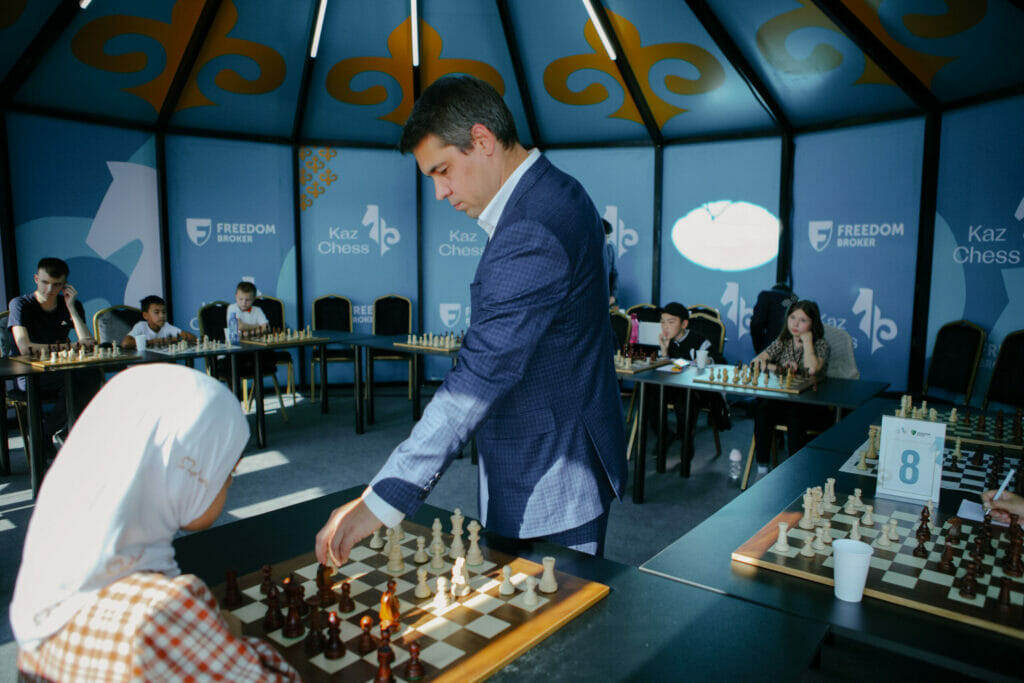
– So, these events also sparked interest from spectators, right?
– We hold our tournaments in a yurt, and we are very lucky with our general contractor, who made a gorgeous yurt. It is about 40% viewable, so people outside can see what’s going on inside without interfering with the players. People come, watch and cheer for the participants. Someone regrets that he didn’t know about the tournament and didn’t get to play. I usually say that they shouldn’t be worried as this is just the beginning of a long journey. This is literally a long journey as we are going to cover 14,000 kilometers across the entire country. We communicated with several event agencies and as we were told, not a single commercial entity or public organization has ever done any event of this scale.
– Organizing such an event on a national scale is really a gigantic undertaking. How difficult was it?
– There are still some rough roads here and there in Kazakhstan. Sometimes we have to cope with urgent organizational issues with partners, despite common understanding. But all these issues can be solved. I mean, this is just regular work, sometimes challenging and with strict deadlines, but it is still a job that must be done.
I’d like to get back to those three World Championships that were held in Kazakhstan over the past twelve months. I’ve been in the sphere of organization of chess tournaments for twenty-five years, and I don’t remember a country that held three World Championships in one year. What does this mean? The leadership of the country, the leadership of our federation sets very ambitious tasks, real challenges. And, you know, this is really thrilling. The decision about the World Championship among school teams in Aktau was made a month and a half before the tournament, while organizing an event here is a little bit more difficult than in Almaty or Astana. The president urged us to go to the regions and our team did it and held a magnificent tournament with participants from 55 countries, a new record. The World Championship also wasn’t an easy task. Argentina was supposed to be the key location for the event and Kazakhstan was chosen a month and a half before the tournament.
– We have just talked about how Kazakhstan held world championships, about the fact that our players show good results… But in your opinion, what is Kazakhstan going to look like on the global chess stage in the next decade?
– Can I expand the planning horizon to 20 years? I believe that we are going to be a highly intelligent nation. It will be visible in every sphere. In terms of chess, I see Kazakhstan among three global leaders. You have to set a very ambitious goal to make it interesting to achieve. And I have no doubt that this goal is absolutely achievable for us.






